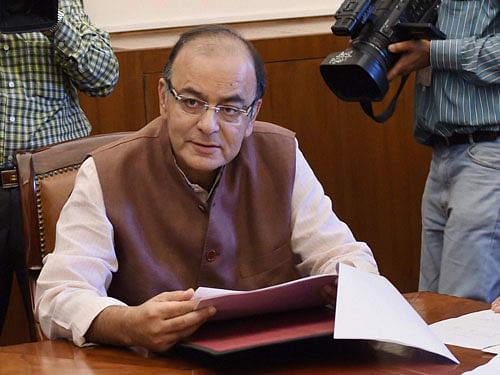Citing the socio-economic and caste census (SECC) data, Finance Minister Arun Jaitley on Sunday said policy reforms, backed by 8-10 per cent economic growth, are key to eradication of poverty which, as per the statistics, remains too high.
Reiterating the Modi government’s commitment of improving lives of poor, Jaitley said a landless household is the most deprived in the society. To push this section out of the poverty ring, “a permanent, formal sector, well-paid job is the best anti-poverty measure”.
“But how can we achieve our objective most effectively and quickly?....The SECC reflects this conclusion: Out of the seven measures of deprivation, the one that leads to the greatest amount of deprivation is being a landless household that derives a major part of its income from manual casual labour,” the minister wrote in his Facebook post.
He stated that the government is promoting investment since “the way to eliminate deprivation is to achieve rapid economic growth of 8-10 percent so that good jobs are created for all Indians quickly”.
The financial activity can happen if it gets legislative boost and for this, the land and GST bills pending in Parliament are crucial, he advocated.
The latest data suggest, argued Jaitley, that the investment cycle is slowly turning around and stalled projects are being unblocked at a faster pace.
“Passing the GST and reforming the land law will accelerate this investment turnaround,” he felt.
Focussing on direct transfer of subsidies which is yielding better results, the minister said: “If we can realise the government’s JAM—Jan Dhan Aadhaar, Mobile—vision we can ensure that money goes directly and more quickly into the pockets of the poor and from the savings we achieve, we can put even more money for the poor”.
The experience with the DBT scheme, said Jaitley, in the LPG was very encouraging. He revealed that a research by the office of the Chief Economic Adviser shows that about Rs 12,700 crores (25 per cent) will be saved this year from the DBT scheme.
“If we can be careful in our design and implementation, we can extend DBT to other commodities, so that the poor get more money to spend for their upliftment,” he stressed.
